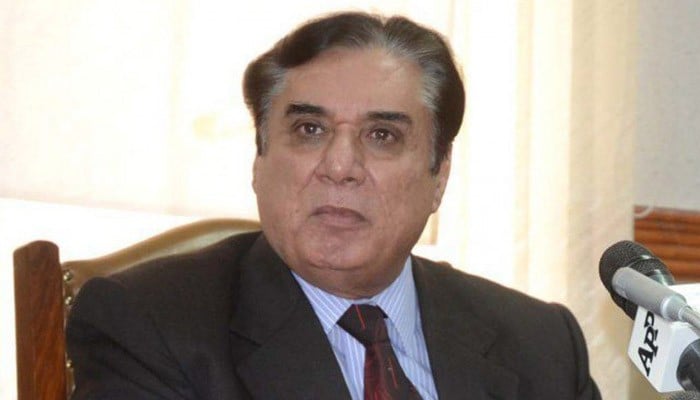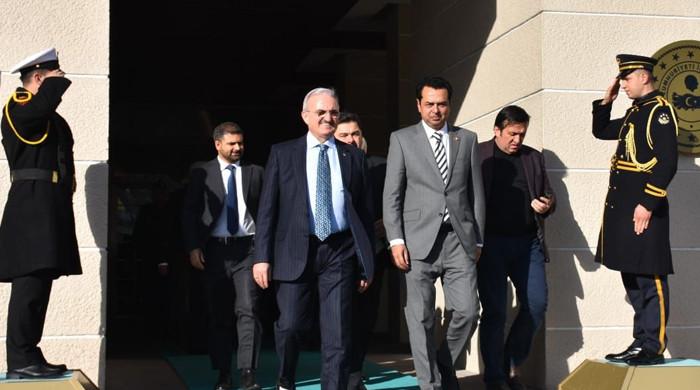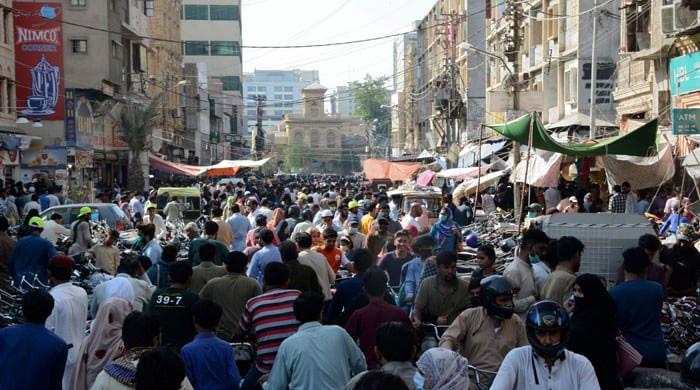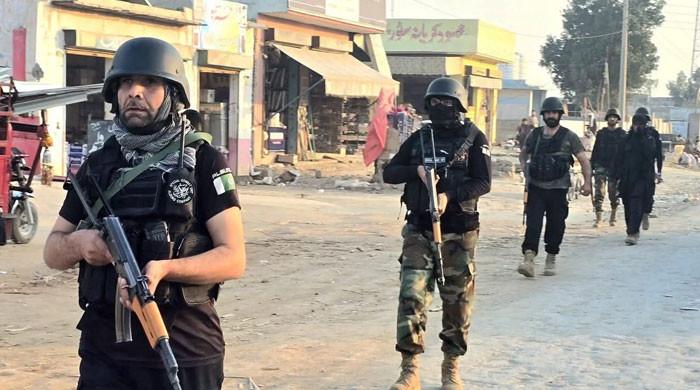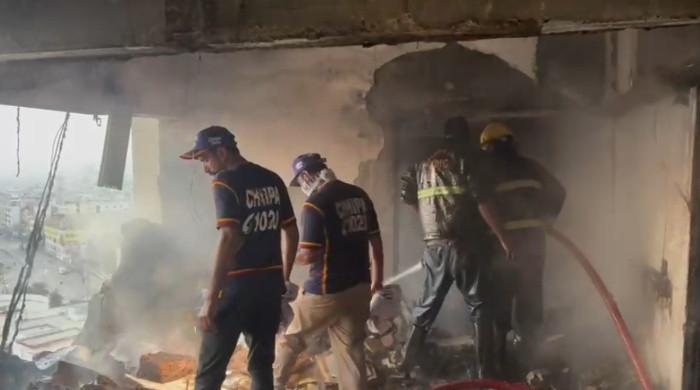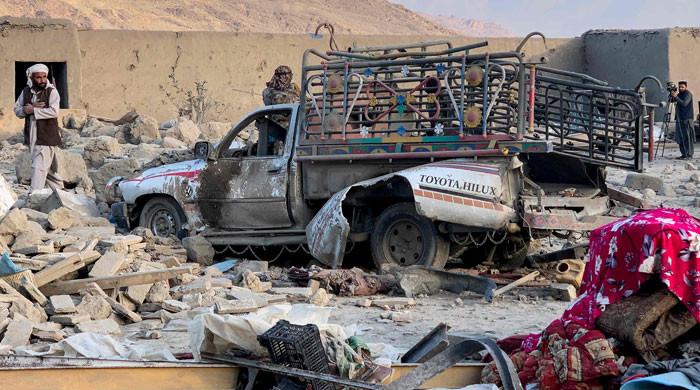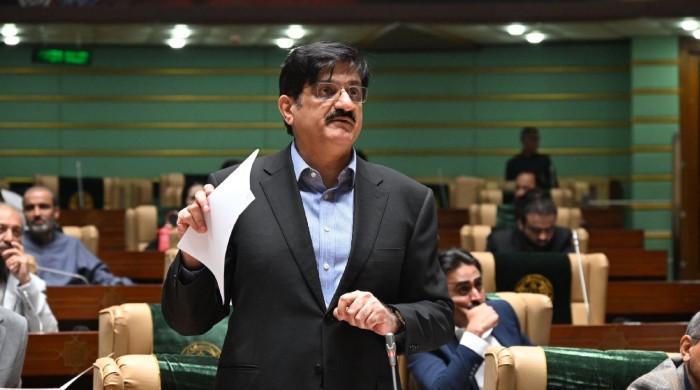Justice (retd) Javed Iqbal appointed NAB chairman
The former Supreme Court judge will serve as NAB's chairman for a 'non-extendable' period of four years
October 09, 2017
ISLAMABAD: The government on Sunday appointed Justice (retd) Javed Iqbal as chairman of National Accountability Bureau (NAB) for a period of four years, according to a notification issued.
"The President of Islamic Republic of Pakistan is pleased to appoint Mr Justice (retd) Javed Iqbal, a retired Judge of the Supreme Court as Chairman National Accountability Bureau (NAB) after consultation with the Leader of the House and the Leader of the Opposition in the National Assembly," read the notification issued by the Ministry of Law.
The former judge will serve as the NAB's chairman for a "non-extendable" period of four years from the date he assumes the charge of the office.
The Pakistan Tehreek-e-Insaf will hold a special meeting today over the appointment of the NAB chairman and is then expected to publicly issue its opinion on the appointment.
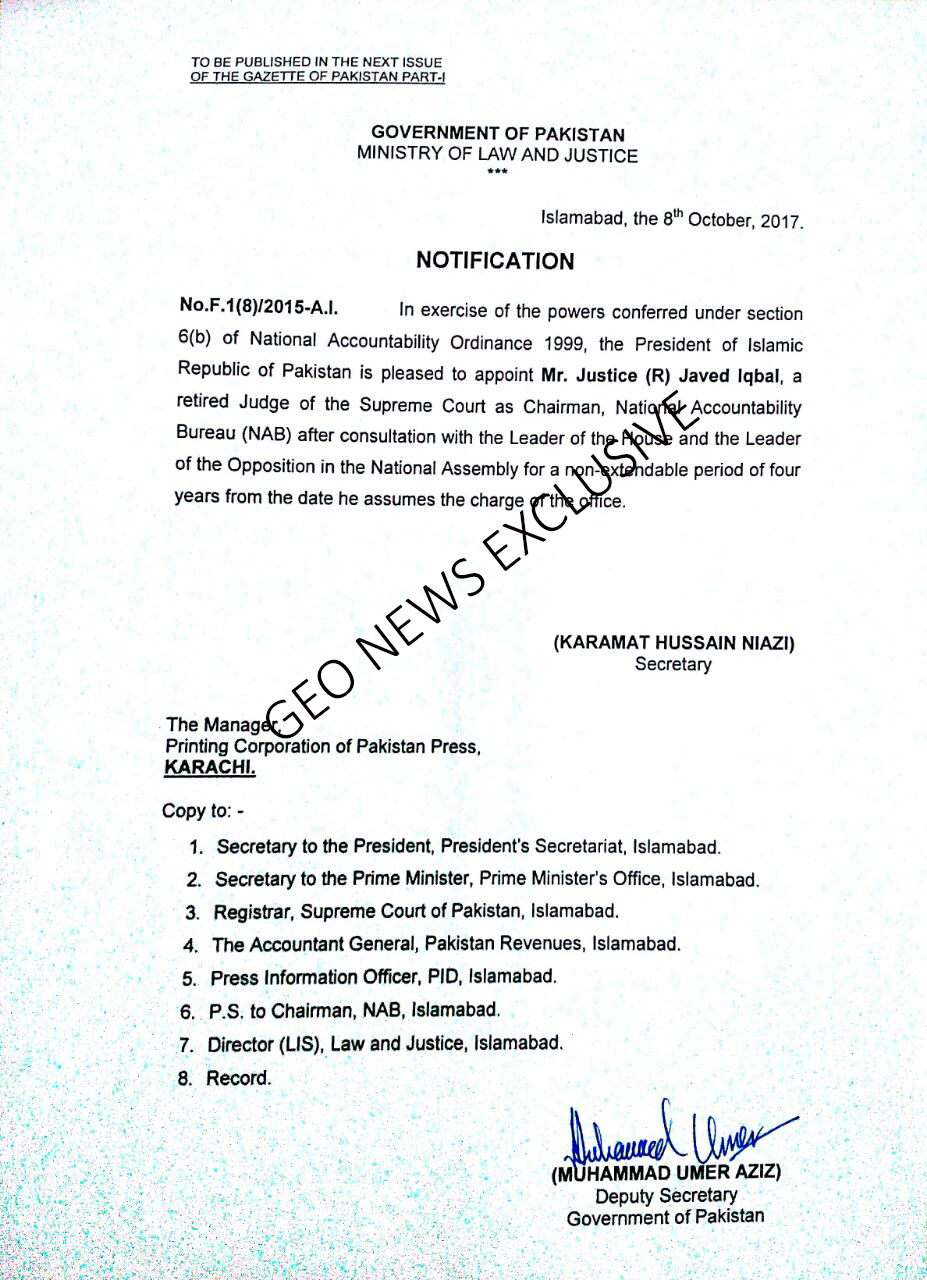
Earlier on Sunday, Leader of Opposition in the National Assembly, Khursheed Shah, confirmed that the retired justice's name was finalised as the next NAB chairman.
The leader of the opposition was addressing a press conference in Sukkur where he spoke regarding the selection of the chief of the country's top anti-graft body.
The incumbent NAB chairman, Qamar Zaman Chaudhry, is retiring on October 10 after the completion of his four-year tenure.
The Pakistan Peoples Party (PPP) leader had proposed Justice (retd) Faqer Mohammad Khokhar, Justice (retd) Iqbal and former secretary of the Election Commission of Pakistan (ECP) Ishtiaque Ahmed Khan for the post whereas the government had suggested Justice (retd) Rehmat Jafry, Justice (retd) Chaudhry Aijaz and Intelligence Bureau Director-General Aftab Sultan.
The Abbottabad Commission
Justice (retd) Iqbal was appointed as a Supreme Court justice in 2000 and retired in 2011. He headed the Abbottabad Inquiry Commission, formed to probe the controversial raid by US Special Forces which led to the killing of wanted terrorist Osama bin Laden.
The commission investigated and reported the circumstances surrounding the May 2011 raid at a compound in Abbottabad.
The commission interviewed over 300 witnesses and gave 200 recommendations in its 700-page report to the prime minister. The report was immediately classified, but a version was leaked by an international news network.
